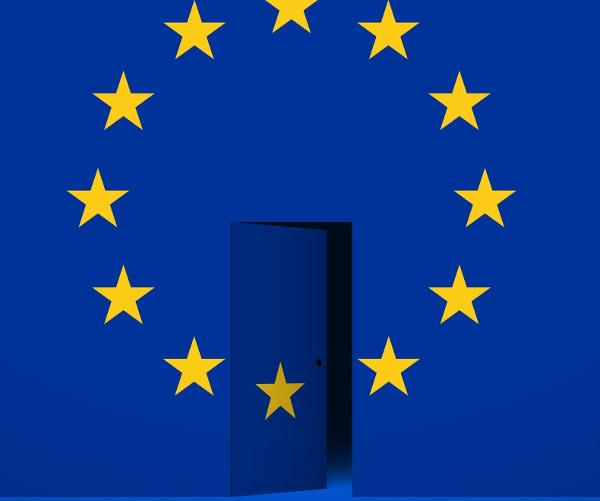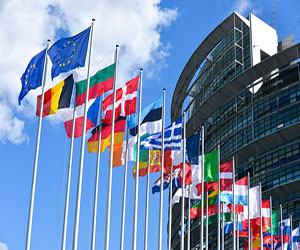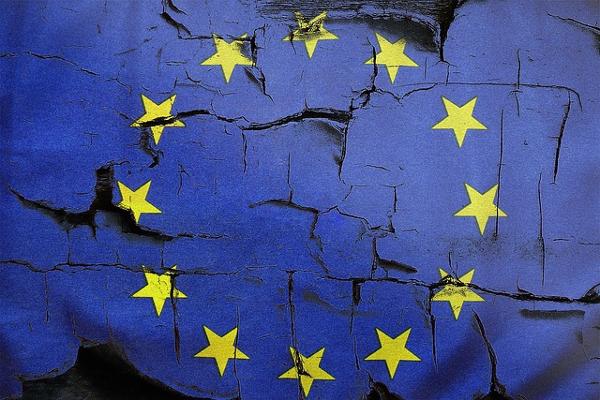In many parts of the world, states commonly amend and, in some cases, adopt or write entirely new constitutions. This happens for a lot of reasons. Hopefully the amended or newly adopted constitution is more democratic, has better checks and balances, and is more responsive to the electorate’s wishes.
Not long ago, Kosovo went through a process of drafting the Constitution of its Republic. Once Kosovo declared its independence, the Constitution was published on a website for public comment. When the final draft was completed in April 2008, the Kosovo Assembly quickly approved it and it entered into force two months later, on 15 June 2008. As the highest legal and political act of the country, the Constitution was prepared and approved through a gradual process: it was compiled by a small group of local experts who were at all times being supervised by international experts, making sure that its provisions were in accordance with the Ahtisaari Plan. At the end, Kosovo’s Constitution became a voluminous document with 14 chapters and 162 articles.
The content of the Kosovo Constitution is considered as the most advanced in the world in terms of respecting human rights, representing ethnic minorities and other social groups. As Aristotle had already indicated, “the physical qualities of the state are not determinants of identity, but the form and content of the governing system”. It follows that the constitutional text is the most visible indicator of the constitutional identity, which is embedded in concrete provisions of this text as well as in its preamble, which provides, inter alia, that the people are “committed to the creation of a state of free citizens that will guarantee the rights of every citizen, civil freedoms and equality of all citizens before the law”. Considering the preamble as a guide to the constitutional structure, it is clear that human rights are embedded as a foundational keystone. Furthermore, since Kosovo's constitution is based on the Ahtisaari package, the Ahtisaari commission, which was charged by the United Nations with organizing the Kosovo status process negotiations, considered that binding Kosovo to the ECHR would serve as one of the most important international safeguards for domestic human rights protection, thus setting high standards for human rights protection.
It is unavoidable that the Kosovo constitution has adopted international law with the primary and fundamental purpose of integrating Kosovo into the European Union’s family. That the future of Kosovo - and that of the Balkans in general - is in the EU was confirmed at the EU-Western Balkans summit held in Thessaloniki in 2003. However, Western Balkan integration is contingent on governmental capability and legal structures that are consistent with those of the Union. Furthermore, Kosovo made membership in the EU a stated objective in its constitution, which states: “With the intention that the state of Kosovo be integrated in the Euro-Atlantic integration processes”.
Yet, the legal structure is only one aspect of the integration process; political and economic variables also play a significant influence. Consequently, Kosovo has been at the center of some of the most controversial moments in the post-Cold War era for this reason. It's no surprise that Kosovo is referred to as sui generis. Either way, our focus will be on Kosovo’s legal capacity to join the European Union family, as Kosovo and Kosovars aspire. Kosovo’s representatives have taken many efforts in recent years to come closer to the European Union in response to these objectives and to consolidate them. The signing of the Stabilization and Association Agreement (SAA) on 27 October 2015, which establishes, for the first time, a “contractual relationship” between the EU and Kosovo, entailing mutual rights and obligations for both entities, is the region’s most recent achievement and one of the most significant steps so far between the EU and Kosovo in legal terms.
However, Article 49 of the Treaty on European Union appears to set a criterion that Kosovo is unable to meet: Kosovo’s qualification as a “state”. Kosovo does not meet the “state” requirement because five EU member states, namely Cyprus, Greece, Romania, Slovakia, and Spain, refuse to recognize it as a state, and thus as a subject of international law with personality and the power to conclude treaties. This multiple lack of recognition by these five EU members complicates the process of Kosovo’s membership in the large EU family. But, if this is an undeniably important legal issue, the EU, fully aware of the situation, has worked to break the impasse by addressing it from a technical standpoint. Apart from the European Parliament's persistent calls for the five member nations to recognize Kosovo without delay, the SAA itself was a concrete demonstration of this endeavor. In fact, the SAA with Kosovo is distinct from the EU's SAAs with other Balkan countries. In general, it covers the same ground as earlier agreements, but there is one key difference: it was signed only by the EU Council, not by individual member states.
In order to address Kosovo’s integration into the European Union, negotiations with Serbia must also be addressed. Kosovo and Serbia with the help of the European Union may realize dialogues with each other. In this regard, a complete normalization of the relations between Kosovo and Serbia “in the form of a legally binding agreement” is important and necessary for Kosovo, and Serbia as well, to makes progresses on their different European pathways. But such a step, however crucial, is difficult. Kosovo has repeatedly stated that it expects nothing less than the recognition of its state, and still has work to do in terms of the rule of law in the region and judicial independence. Nevertheless, Kosovo’s constitution provides, at least, a light for the country’s path towards EU membership in terms of legal capacity.






















